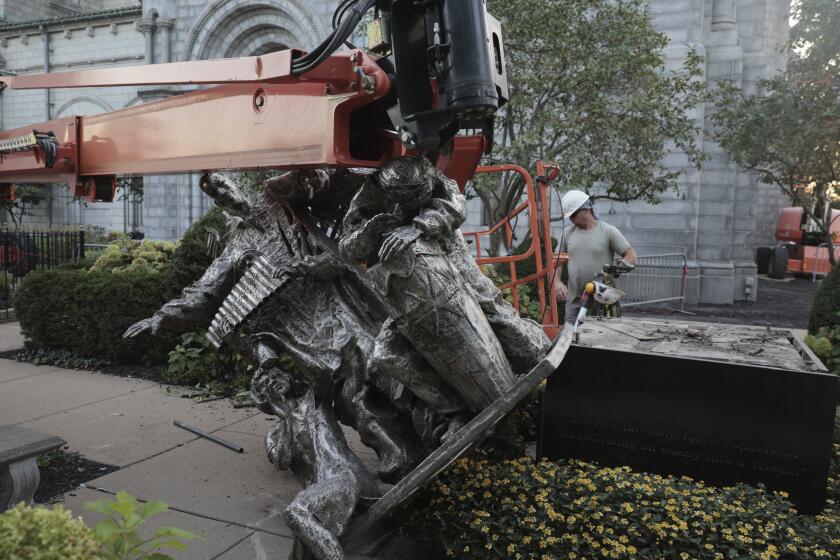Feinstein questions federal shake-up
U.S. Sen. Dianne Feinstein (D-Calif.) on Wednesday called on Atty. Gen. Michael Mukasey to explain the recent disbanding of a high-profile unit in the U.S. attorney’s office in Los Angeles that specialized in prosecuting public corruption cases.
In a letter to the attorney general, Feinstein said she read about the shake-up in news accounts.
The articles described how U.S. Atty. Thomas P. O’Brien decided to eliminate the public corruption and environmental crimes section and transfer its 17 prosecutors to other units in the office.
In an interview with The Times last week, O’Brien said the rationale for doing so was that more lawyers would be able to file public corruption cases and that he expected the number of such prosecutions to rise because of the change.
Feinstein wrote that she was concerned about low morale and ill-will the decision reportedly has caused within the office, as well as the need to train new prosecutors “to bring them up to speed” on the complexities of corruption probes.
“While I respect the need for U.S. attorneys to make necessary management decisions, I have serious concerns about the potential impact of this change,” Feinstein wrote. “I am concerned that the Los Angeles office is sending a message that these cases will not receive sufficient attention, resources and leadership.”
Feinstein called on Mukasey to provide the Justice Department’s rationale for the move, “including the specific facts, statistics and circumstances that drove this decision.”
She also asked who was consulted and what role, if any, the Justice Department and/or the White House played in the decision.
Finally, the senator asked whether the lawyers in the disbanded unit had any input in the decision-making process and how pending public corruption cases will be handled in the wake of the disbanding.
Thom Mrozek, a spokesman for O’Brien, declined comment, saying it would be improper “to comment on a communication between the legislative branch and the attorney general of the United States.”
Feinstein’s interest in the situation springs from her earlier concerns in the U.S. attorney’s firing scandal of 2007, in which at least eight U.S. attorneys allegedly were fired for political reasons, said Scott Gerber, a spokesman for the senator.
“There may be a very good explanation for what’s happening in Los Angeles,” he said. “But the way it was reportedly done leaves some very serious questions that need to be answered.”
Before its disbanding, lawyers in the section prosecuted politicians in South Gate and Lynwood, as well as a group of rogue police officers and others who were conducting home invasion-style robberies staged to look like legitimate police raids.
Several lawyers in the disbanded unit said in interviews with The Times last week that it was eliminated earlier this month after a meeting with O’Brien, in which he angrily chastised prosecutors for working too few hours, filing too few cases and for bad-mouthing him behind his back.
Those lawyers requested anonymity because they allegedly were warned that if they challenged the office’s explanation of the move in interviews with reporters, they would face retaliation.
In the interview last week, O’Brien declined to comment on the allegations against him but insisted that the reorganization was aimed at enhancing -- not hindering -- the effort to combat public corruption.
O’Brien said he was planning to appoint special coordinators to oversee the handling of such cases by a wider pool of attorneys in the office and for special training by experts from the Justice Department.
Laurie Levenson, a professor at Loyola Law School and a former federal prosecutor in Los Angeles, said she had read Feinstein’s letter and thought it was unusual.
“I don’t think she’s usually that intricately involved in the personnel decisions of the U.S. attorney’s offices,” Levenson said. “It sounds like she has some concerns about the management process.”
--
More to Read
Sign up for Essential California
The most important California stories and recommendations in your inbox every morning.
You may occasionally receive promotional content from the Los Angeles Times.











